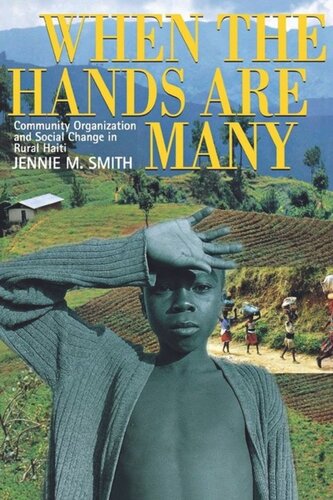

Most ebook files are in PDF format, so you can easily read them using various software such as Foxit Reader or directly on the Google Chrome browser.
Some ebook files are released by publishers in other formats such as .awz, .mobi, .epub, .fb2, etc. You may need to install specific software to read these formats on mobile/PC, such as Calibre.
Please read the tutorial at this link: https://ebookbell.com/faq
We offer FREE conversion to the popular formats you request; however, this may take some time. Therefore, right after payment, please email us, and we will try to provide the service as quickly as possible.
For some exceptional file formats or broken links (if any), please refrain from opening any disputes. Instead, email us first, and we will try to assist within a maximum of 6 hours.
EbookBell Team

4.7
16 reviewsIn an ethnography that challenges standard approaches to understanding the poor and disempowered, Jennie M. Smith's descriptions of peasant activity change what constitutes a democratic society. Through their civil institutions and artistic expression, Haitian peasants, widely known as some of the world's most impoverished, politically disempowered, and illiterate citizens, debate the meanings of development, democracy, and the public good.Smith offers a historically grounded overview of how the Haitian state and certain foreign powers have sought to develop rural Haiti and relates how Haitian peasants have responded to such efforts through words and deeds. The author argues that songs called chante pwen serve as "melodic machetes," a tool with which the peasants make their voices heard in many social circumstances.When the Hands Are Many illustrates the philosophies, styles, and structures typical of social organization in rural Haiti with narrative portraits of peasant organizations engaged in agricultural work parties, business meetings, religious ceremonies, social service projects, song sessions, and other activities. Smith integrates these organizations' strengths into a new vision for social change and asks what must happen in Haiti and elsewhere to facilitate positive transformation in the world today.